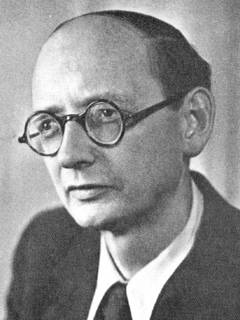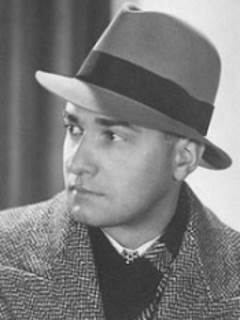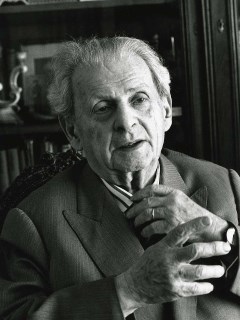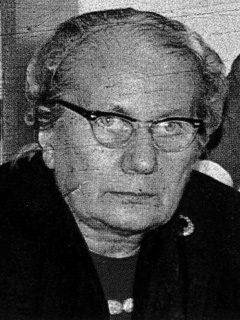Dorion Cairns
1901-1973
(2018). Conversații cu Husserl și Fink, transl. R. Breazu, Ratio & Revelatio, Oradea.
(2013). The philosophy of Edmund Husserl, Springer, Dordrecht.
(2011). Reflections on tradition. Studia Phaenomenologica 11, pp. 15-27.
with Embree, L. , Zaner, R. , Kersten, F. (2007). Some applications of Husserl's theory of sense-transfer. The New Yearbook for Phenomenology and Phenomenological Philosophy 7, pp. 309-335.
(2007). Observations sur la Tthéorie de l'intuition dans la phénoménologie de Husserl de Levinas: Peut-elle servir d'introduction à la phénoménologie?. Alter: Revue de phénoménologie 15, pp. 339-354.
(2004)., An approach to Husserlian phenomenology, in D. Moran & L. Embree (eds.), Phenomenology: Critical concepts in philosophy I, London, Routledge, pp. 25-37.
(2004)., Reason and emotion, in D. Moran & L. Embree (eds.), Phenomenology: Critical concepts in philosophy II, London, Routledge, pp. 335-347.
(2004)., Theory of intentionality, in D. Moran & L. Embree (eds.), Phenomenology: Critical concepts in philosophy I, London, Routledge, pp. 184-192.
with Embree, L. , Zaner, R. , Kersten, F. (2004). Review of Eugen Fink's "The problem of Edmund Husserl's phenomenology". The New Yearbook for Phenomenology and Phenomenological Philosophy 4, pp. 323-339.
(2002). Phenomenology and present-day psychology. Phenomenology and the Cognitive Sciences 1 (1), pp. 69-77.
(2002). The fundamental philosophical significance of Husserl's logische untersuchungen. Husserl Studies 18 (1), pp. 41-49.
(2001). The egological reduction. Alter: Revue de phénoménologie 9, pp. 299-311.
(2000). Reason and emotion. Husserl Studies 17 (1), pp. 21-33.
(1984)., Philosophy as a striving towards universal sophia in the integral sense, in L. Embree (ed.), Essays in memory of Aron Gurwitsch, Washington DC, University Press of America, pp. 27-43.
(1976). Conversations with Husserl and Fink, Nijhoff, Den Haag.
(1975). A letter to John Wild about Husserl. Research in Phenomenology 5, pp. 155-181.
(1973). Guide for translating Husserl, Springer, Dordrecht.
(1973)., Perceiving, remembering, image-awareness, feigning awareness, in F. Kersten & R. Zaner (eds.), Phenomenology: Continuation and Criticism, Den Haag, Nijhoff, pp. 251-262.
(1973)., The ideality of verbal expressions, in F. Kersten & R. Zaner (eds.), Phenomenology: Continuation and Criticism, Den Haag, Nijhoff, pp. 239-250.
(1972)., The many senses and denotations of the word Bewußtsein (consciousness) in Edmund Husserl's writings, in L. Embree (ed.), Lifeworld and consciousness, Evanston, Ill., Northwestern University Press, pp. 19-31.
Husserl, E. (1960). Cartesian meditations: An introduction to phenomenology, transl. D. Cairns, Nijhoff, Den Haag.
(1950)., Phenomenology, in V. Ferm (ed.), A dictionary of philosophical systems, New York, The philosophical library, pp. 353-364.
(1942)., Evidence, in D. Runes (ed.), The dictionary of philosophy, New York, The philosophical library.
(1942)., Phenomenology, in D. Runes (ed.), The dictionary of philosophy, New York, The philosophical library, pp. 231-234.
(1941). Concerning Beck's "The Last Phase of Husserl's Phenomenology. Philosophy and Phenomenological Research 1 (4), pp. 492-498.
(1941). Review of Edmund Husserl, Die Frage nach dem Ursprung der Geometrie. Philosophy and Phenomenological Research 1 (4), pp. 98-109.
(1941). The ideality of verbal expressions. Philosophy and Phenomenological Research 1 (4), pp. 453-462.
(1940)., An approach to phenomenology, in M. Farber (ed.), Philosophical essays in memory of Edmund Husserl, Cambridge, Harvard University Press, pp. 3-18.
(1939). Some results of Husserl's investigations. The Journal of Philosophy 36 (9), pp. 236-238.
(1933). The philosophy of Edmund Husserl, Harvard University, Cambridge, MA.







